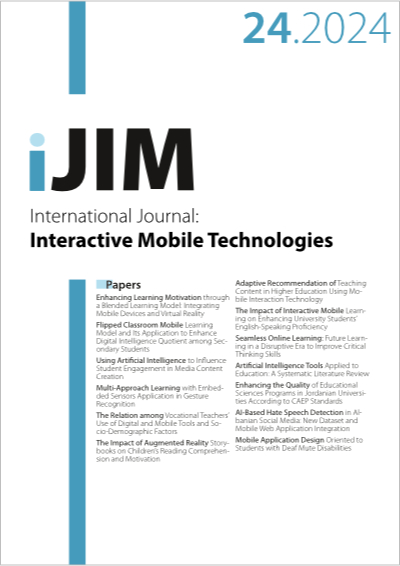The Relation among Vocational Teachers’ Use of Digital and Mobile Tools and Socio-Demographic Factors
DOI:
https://doi.org/10.3991/ijim.v18i24.50867Keywords:
digital tools, mobile learning tools, vocational teachers, Generation Alpha, Generation Z, socio-demographic factorsAbstract
Education is increasingly influenced by digitalization and intergenerational differences. With the coming of the Alpha generation and its future entry into secondary education, there is a need to continuously improve and adapt educational strategies, teaching methods, and pedagogical and digital competences of teachers to these changes. The aim of the study is to find out which digital and mobile tools are used in teaching by Czech teachers in secondary vocational education and which factors influence teachers’ attitude towards the reasons for not including these tools in teaching. Data were collected using a questionnaire survey method. The data were analyzed at 95% confidence level using Chi-square test in SPSS software. Phicoefficient, Odds ratio, and Cramer’s V method were used to find out the degree of relation between the variables. The research showed a significant effect of gender, age, and subject area taught on teachers’ use of digital tools. The use of mobile tools in teaching decreases as teachers, age. Women are more likely to not use LMS Moodle compared to men. Women perceive teachers’ digital competences as more deficient and believe that they may be the reason for not using digital tools in teaching. The study extends theoretical knowledge and provides recommendations on how to prepare secondary education actors in the context of digital pedagogy for the arrival of the Alpha generation.
Downloads
Published
How to Cite
Issue
Section
License
Copyright (c) 2024 Kateřina Berková, Andrea Kubišová, Dagmar Frendlovská, Katarína Krpálková Krelová, Pavel Krpálek, Tereza Vacínová

This work is licensed under a Creative Commons Attribution 4.0 International License.



